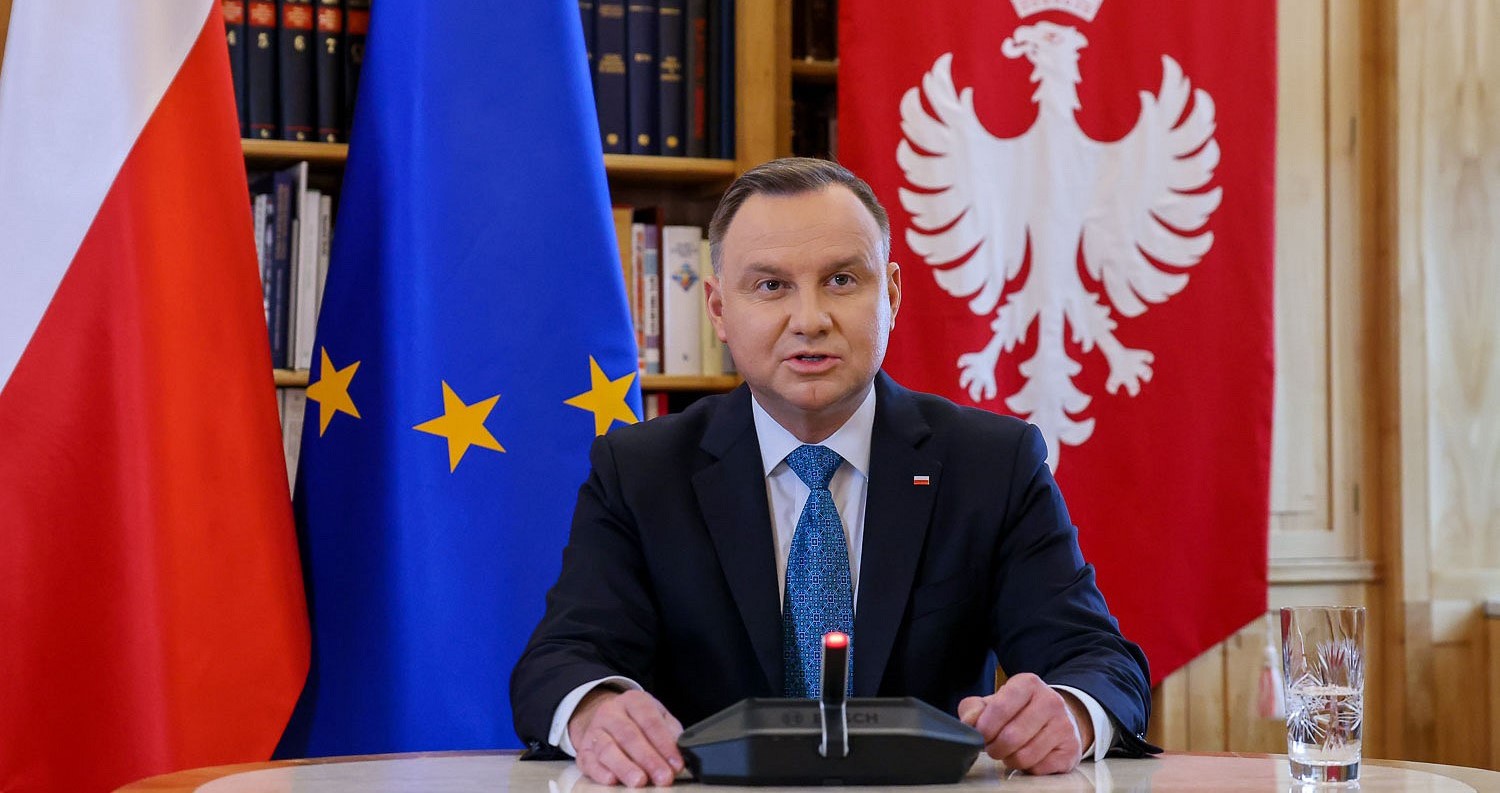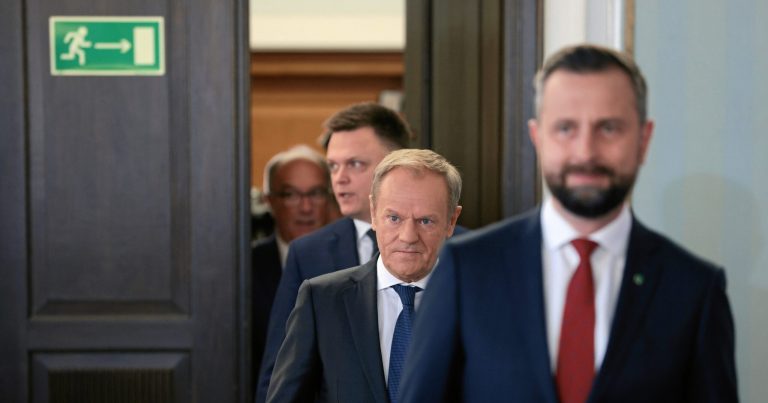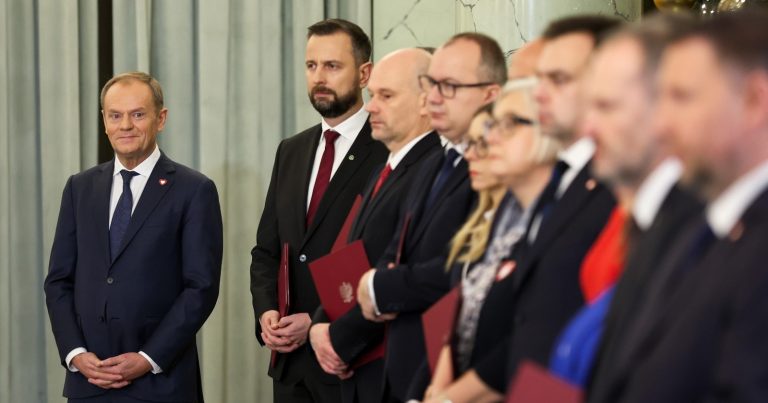President vetoes law recognising Silesian as regional language in Poland

President Andrzej Duda has vetoed a law that would have made Silesian – which is spoken in the historical area of Silesia in southwest Poland – a recognised regional language.
In his justification, Duda argued that Silesian is a dialect of Polish, rather than a language in itself, and also cited national security concerns. The president’s decision, which had been widely expected, was criticised by figures from the ruling coalition, whose parliamentary majority had approved the law in April.
Prezydent RP @AndrzejDuda, na podstawie art. 122 ust. 5 Konstytucji Rzeczypospolitej Polskiej z dnia 2 kwietnia 1997 r., odmówił podpisania ustawy z dnia 26 kwietnia 2024 r. o zmianie ustawy o mniejszościach narodowych i etnicznych oraz języku regionalnym oraz niektórych innych… pic.twitter.com/YAQ69BuT3F
— Kancelaria Prezydenta (@prezydentpl) May 29, 2024
In the most recent national census, around 460,000 people in Poland said they use Silesian as their main tongue at home. That is far more than the 87,600 who speak Kashubian, a language native to northern Poland that is currently the country’s only recognised regional language.
Such official recognition allows a language to be taught in schools and used in local administration in municipalities where at least 20% of the population declared in the last census that they speak it.
However, in the justification for his veto today, Duda argued that, in “the opinions of experts, especially linguists”, Silesian does not meet the criteria defining a language laid out in the 2005 law regulating Poland’s recognised ethnic minorities and regional languages.
It is instead an “ethnolect”, said Duda, a term that refers to a variety of a language associated with a certain ethnic group. The president noted that, as such, Silesian is still subject to legal protections and support, as are other dialects of Polish, under separate legislation.
Duda also voiced his concern that, if Silesian were recognised as a regional language, it could “result in similar expectations among representatives of other regional groups who want to cultivate their local tongues”.
Finally, the president also cited national security concerns in relation to the “current social and geopolitical situation…related to the war being waged on the eastern border”. At such a time, there must be “special care to preserve national identity”, including “cultivating the native language”.
That latter justification was criticised as “nationalist hysteria” by Monika Rosa, an MP from the ruling coalition and one of the most vocal proponents of recognising Silesian as a regional language, reports the Gazeta Wyborcza daily.
Rosa also dismissed Duda’s reference to experts. She said that everyone chooses whichever expert opinions best suit them. The MP pledged that another bill recognising Silesian would be presented to parliament and signed by the new president who will replace Duda when his final term ends next year.
Prezydent odmówił uznania śląskiego językiem regionalnym. Zawetował ustawę. Gańba fest! pic.twitter.com/g7Hc1JMg99
— Monika Rosa (@moanrosa) May 29, 2024
The speaker of parliament, Szymon Hołownia, who is a leader of one of the parties in the ruling coalition, also criticised Duda’s decision.
“Diversity is Poland’s strength, not a threat to it. I’m sorry you don’t understand that, Mr President,” he wrote on social media.
However, the president received praise from Janusz Kowalski, an opposition MP from the right-wing Sovereign Poland (Suwerenna Polska) party.
“Respect for President Andrzej Duda, who defends the unitarity of the Republic of Poland,” tweeted Kowalski. “The Silesian language is the Polish language. Silesians are Poles! The German plan to break up the Polish national community has been stopped today.”
Szacunek dla Pana Prezydenta @AndrzejDuda, który broni unitarności Rzeczypospolitej. Język śląski to język polski. Ślązacy są Polakami!
Niemiecki plan rozbijania polskiej wspólnoty narodowej został dziś zatrzymany. 🇵🇱💪 https://t.co/fxGEjw4j05
— Janusz Kowalski 🇵🇱 (@JKowalski_posel) May 29, 2024

Notes from Poland is run by a small editorial team and published by an independent, non-profit foundation that is funded through donations from our readers. We cannot do what we do without your support.
Main image credit: Jakub Szymczyk/KPRP

Daniel Tilles is editor-in-chief of Notes from Poland. He has written on Polish affairs for a wide range of publications, including Foreign Policy, POLITICO Europe, EUobserver and Dziennik Gazeta Prawna.






